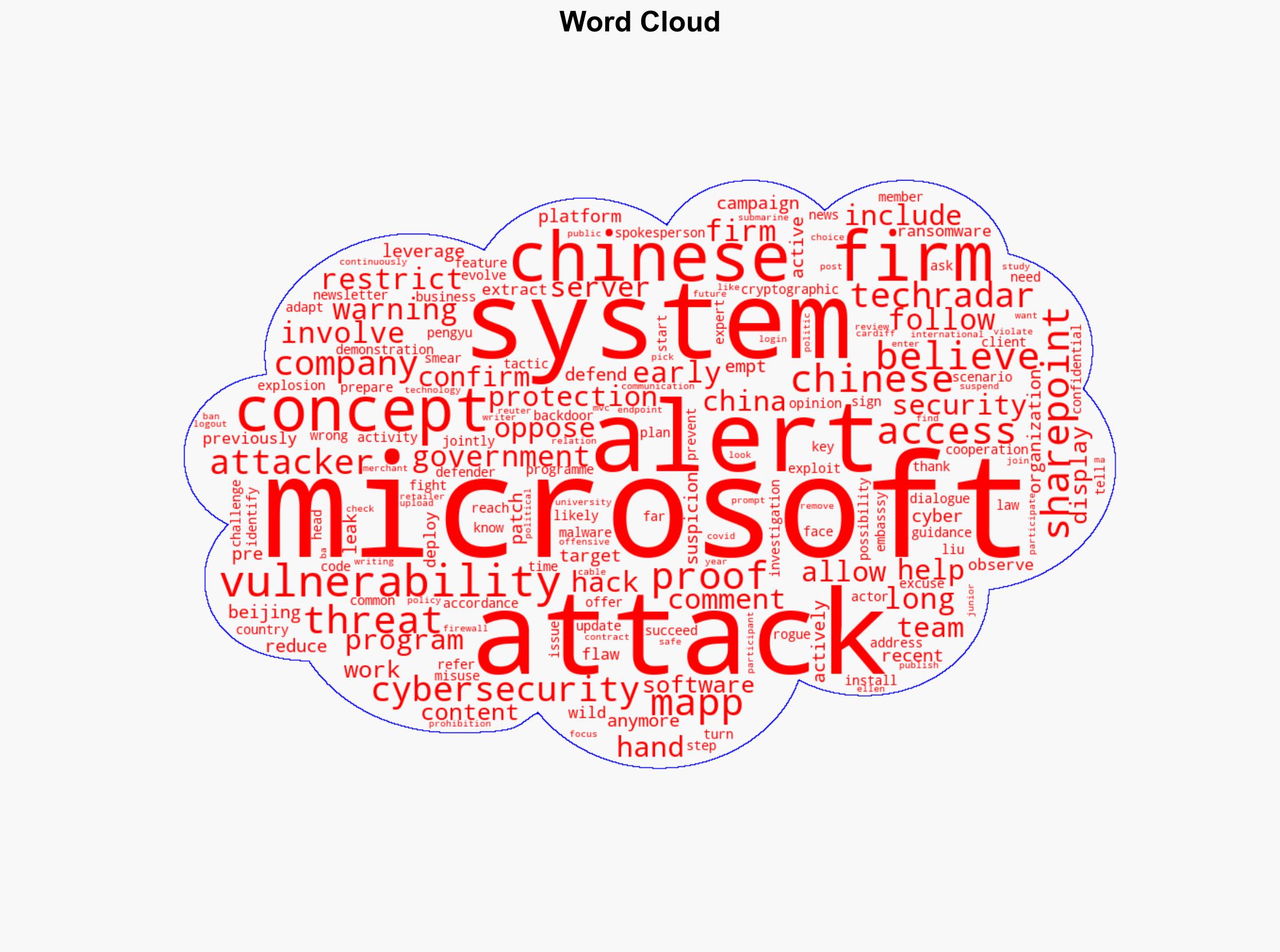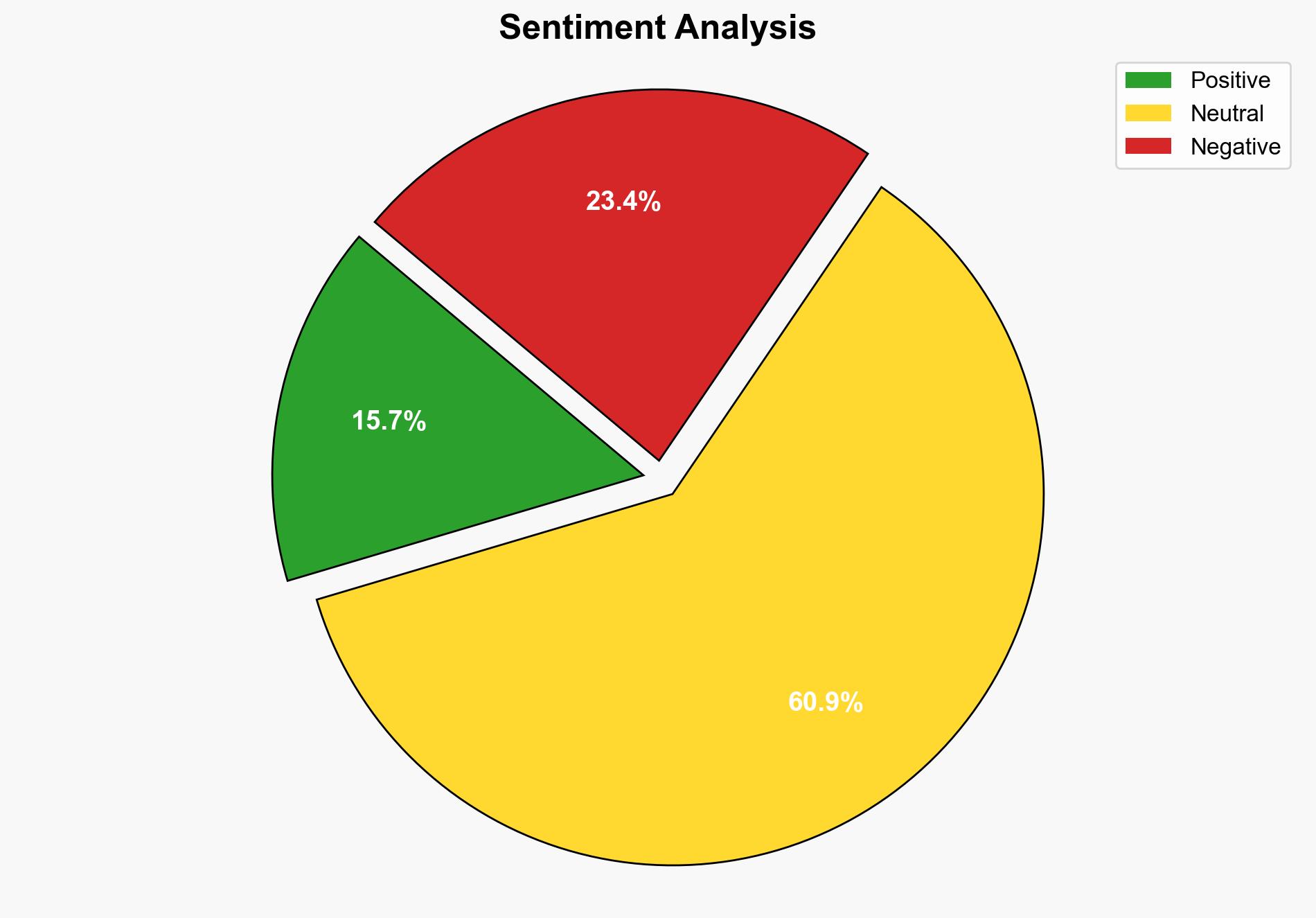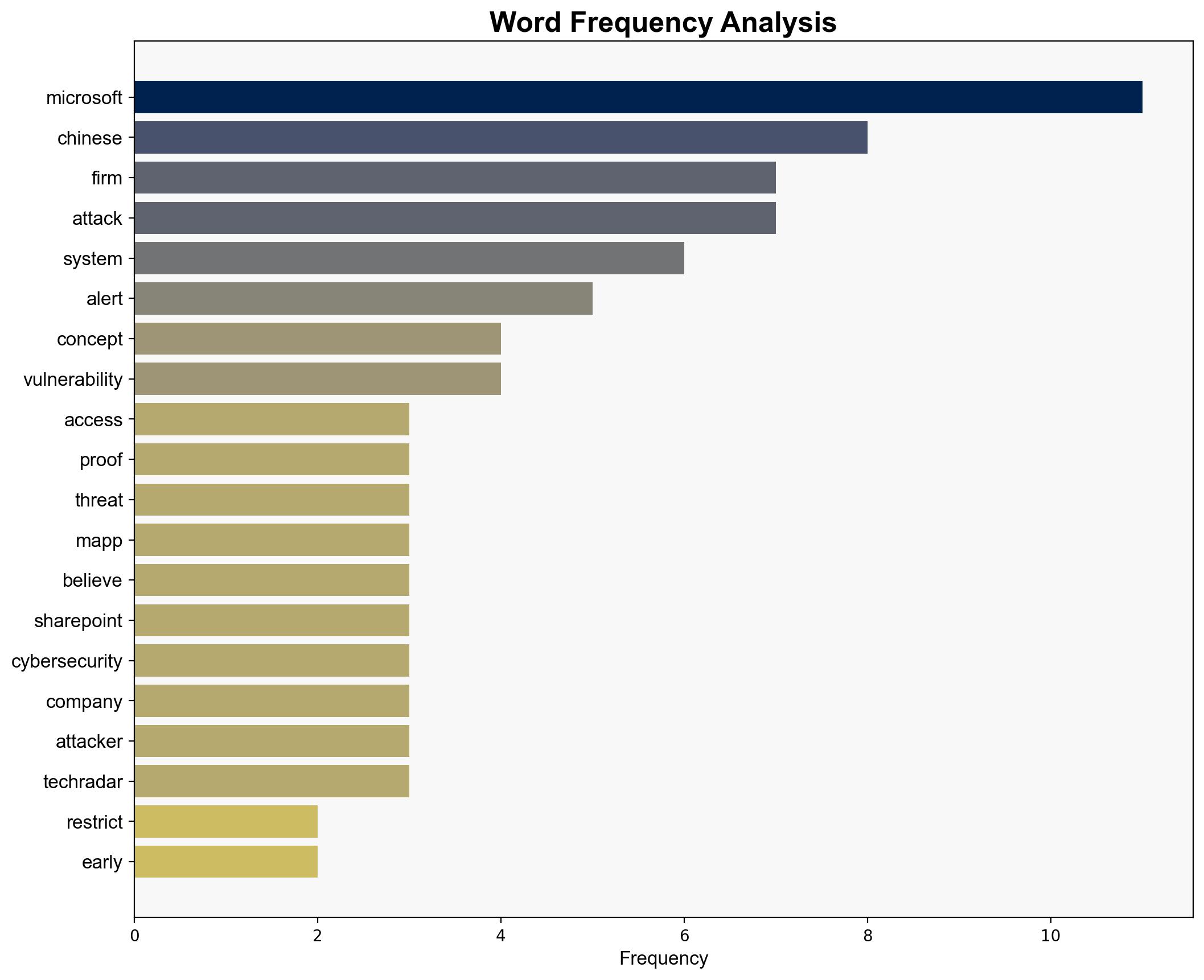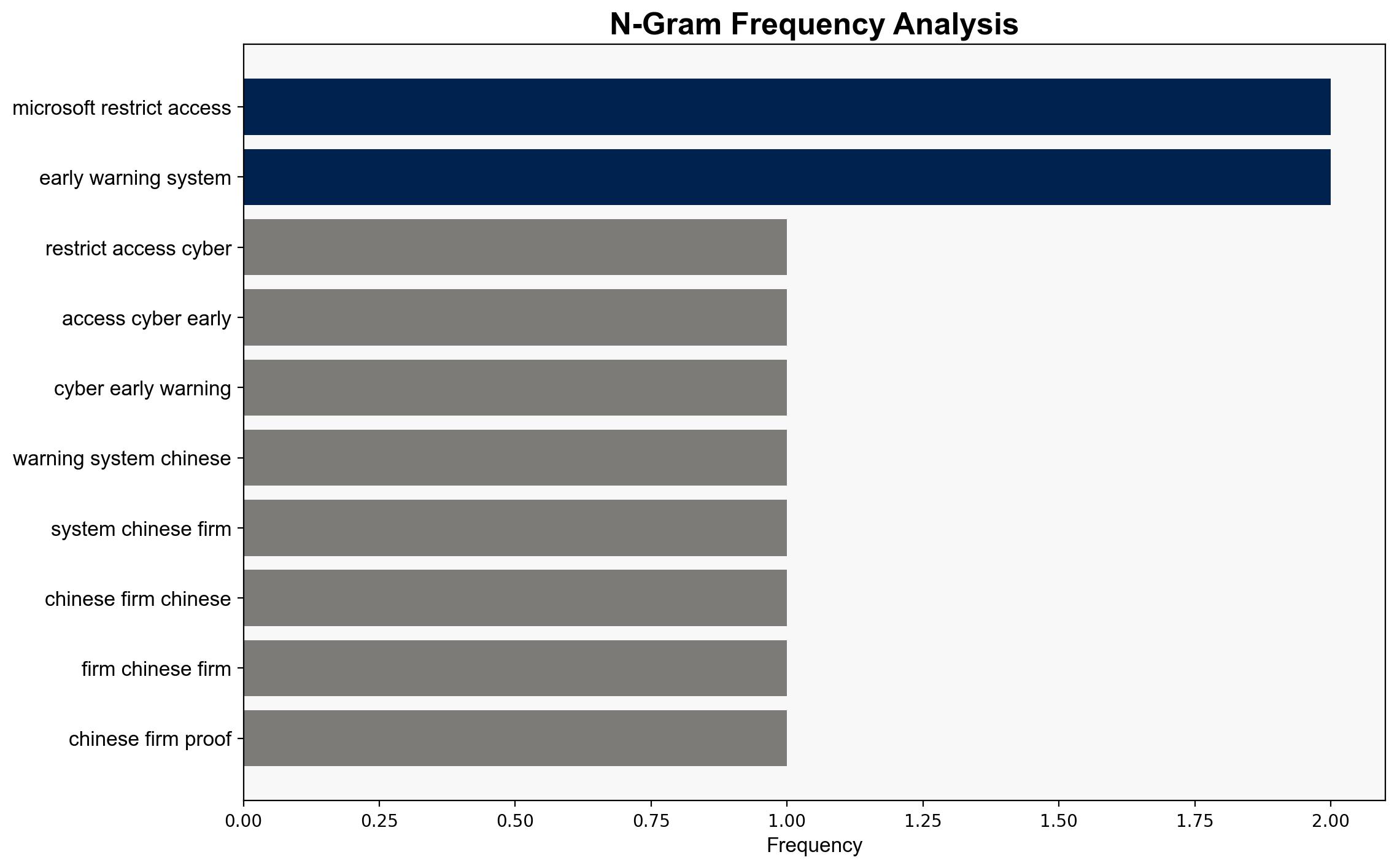Microsoft restricts access to its cyber early warning systems for some Chinese firms – TechRadar
Published on: 2025-08-21
Intelligence Report: Microsoft restricts access to its cyber early warning systems for some Chinese firms – TechRadar
1. BLUF (Bottom Line Up Front)
Microsoft’s decision to restrict access to its cyber early warning systems for certain Chinese firms is likely driven by concerns over potential misuse of the system by entities linked to the Chinese government. The most supported hypothesis is that Microsoft aims to mitigate risks associated with state-sponsored cyber threats. Confidence level: Moderate. Recommended action: Enhance monitoring of cyber activities and engage in diplomatic dialogue to address cybersecurity concerns.
2. Competing Hypotheses
1. **Hypothesis A**: Microsoft restricted access due to credible evidence that Chinese firms were involved in exploiting vulnerabilities for state-sponsored cyber attacks. This action is a preventive measure to protect global cybersecurity interests.
2. **Hypothesis B**: The restriction is a strategic business decision by Microsoft to align with U.S. government policies and geopolitical pressures, rather than based on direct evidence of misuse by Chinese firms.
Using the Analysis of Competing Hypotheses (ACH) 2.0, Hypothesis A is better supported by the available intelligence, which suggests a link between the Chinese government and recent cyber attacks leveraging Microsoft’s systems.
3. Key Assumptions and Red Flags
– **Assumptions**:
– Hypothesis A assumes that Microsoft has credible intelligence linking Chinese firms to cyber threats.
– Hypothesis B assumes that geopolitical factors heavily influence Microsoft’s business decisions.
– **Red Flags**:
– Lack of specific evidence publicly disclosed by Microsoft to substantiate claims against Chinese firms.
– Potential bias in interpreting Microsoft’s actions as solely politically motivated without considering cybersecurity evidence.
– **Blind Spots**:
– The internal decision-making process within Microsoft and the extent of U.S. government influence remain unclear.
4. Implications and Strategic Risks
The restriction could escalate tensions between the U.S. and China, impacting bilateral relations and trade. It may also lead to retaliatory measures by China, affecting global cybersecurity cooperation. Economically, Chinese firms might seek alternative cybersecurity solutions, potentially impacting Microsoft’s market share in the region. Geopolitically, this move could be perceived as part of a broader strategy to counter Chinese technological influence.
5. Recommendations and Outlook
- Enhance intelligence sharing with allied nations to strengthen collective cybersecurity defenses.
- Engage in diplomatic efforts to address cybersecurity concerns with China, aiming to establish mutual agreements on cyber conduct.
- Scenario Projections:
- Best Case: Improved cybersecurity collaboration with China, leading to reduced cyber threats.
- Worst Case: Escalation of cyber conflicts and economic repercussions due to retaliatory actions.
- Most Likely: Continued tensions with sporadic cyber incidents, requiring ongoing vigilance and adaptive strategies.
6. Key Individuals and Entities
– Liu Pengyu, spokesperson for the Chinese embassy, provided a statement opposing the use of cybersecurity issues to attack China.
– Microsoft, as the entity implementing the restrictions.
7. Thematic Tags
national security threats, cybersecurity, counter-terrorism, regional focus





